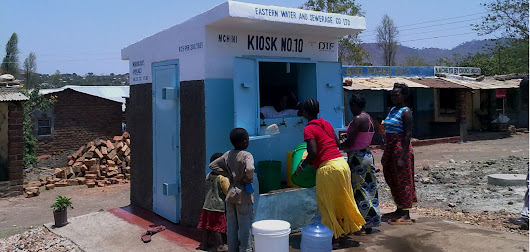Why Why Why?
Why Water and Sanitation?
Hi and welcome to the first post of my blog!
This post will be about why I've chosen this particular theme for my blog and some of the ideas that I've found very interesting in the papers from the reading list so far.
What is sanitation?
Why the theme?
Personal Experience
Well, the majority of my childhood was spent living in Mauritius where we had to boil our tap water and let it cool before drinking. I remember in my time at secondary school here in the UK, I was made aware of the fact that the water from my tap here had been treated and was safe to drink without having to boil (and also that limescale was the result of hard water and has to be removed unless you like crunchy tea). I was very impressed with this fact because I finally understood why, when my cousins visited me on holiday in Mauritius, they did the 'unthinkable' and drank straight from the tap. They contracted a diarrheal disease afterwards too unfortunately and it was not pretty.
Interest from readings
This was emphasized in Nayebare et al.'s (2020) paper where in Lukaya, Uganda, water comes from ground-water from shallow wells and unprotected springs. There was no sewer network or wastewater treatment facility and commonly reported morbidity was from Malaria (81%) and diarrheal diseases (19%). Moreover, if the water didn't contain diarrheal diseases, there was the issue of acidity where nitrate concentrations were well above the WHO's recommendation of 50mg/L, making water very difficult to drink and use.
There was also the mention of pit latrines being emptied by either digging another pit or transferring faecal matter to other pits or how runoff during the rainy season was used as a flushing mechanism contributing to contamination of water sources.
From these, it became clear to me that Water and Sanitation and their issues are inextricably linked and complex. More importantly, however, it was more interesting to me that there are people in places like Lukaya that are being denied a human right.
What to expect?
not this (the 'country'):





I really enjoyed your first post Brandon. I think that you effectively broke down sanitation as a "buzz word", and effectively demonstrated the difference between access to water and access to safe water- which was a great place to start in your first post. I think the personal anecdotes and satire add a nice touch. Look forward to reading the rest! :)
ReplyDeletethanks so much I'm glad you liked it!
DeleteThank you Brandon, this is a good introduction and the anecdote is useful, and well presented.
ReplyDelete